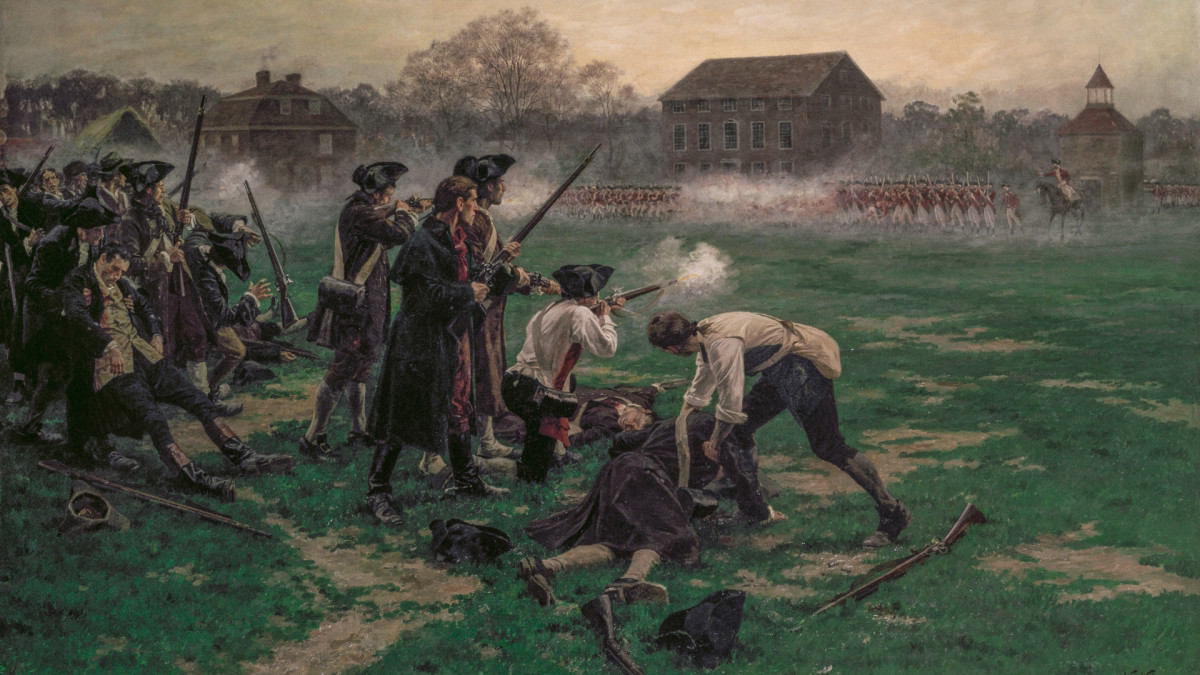The Revolutionary War: Understanding the Reasons Behind the Conflict

The American Revolutionary War, which lasted from 1775 to 1783, was a significant event in the history of the United States. The revolutionary war marked the beginning of the country’s independence from Great Britain and paved the way for the establishment of a new nation. However, the reasons behind the conflict were complex and multifaceted. In this article, we will explore the primary causes of the Revolutionary War and how they contributed to the eventual outcome.
The British Government’s Policies
One of the primary reasons for the Revolutionary War was the British government’s policies towards the American colonies. The British government imposed a series of taxes and regulations on the colonies, which were seen as oppressive and unfair. The Stamp Act of 1765, which required colonists to pay a tax on all printed materials, was particularly unpopular. The colonists believed that they were being taxed without representation in Parliament, which violated their rights as British citizens.
The Boston Massacre
The Boston Massacre, which occurred in 1770, was another significant event that contributed to the outbreak of the Revolutionary War. British soldiers fired into a crowd of colonists, killing five people. The incident sparked outrage among the colonists and fueled anti-British sentiment. Many colonists saw the massacre as evidence of British tyranny and oppression.
The Boston Tea Party
The Boston Tea Party, which took place in 1773, was another event that contributed to the Revolutionary War. Colonists, disguised as Native Americans, boarded British ships and dumped tea into Boston Harbor in protest of the Tea Act. The act allowed the British East India Company to sell tea directly to the colonies, bypassing colonial merchants. The colonists saw this as an attempt by the British government to monopolize trade and exert control over the colonies.
The Intolerable Acts
The Intolerable Acts, passed by the British Parliament in 1774, were a series of laws designed to punish Massachusetts for its role in the Boston Tea Party. The acts closed Boston Harbor, suspended Massachusetts’ charter, and allowed British officials accused of crimes to be tried in England. The acts were seen as a direct attack on colonial self-government and further fueled anti-British sentiment.
The Continental Congress
In response to the British government’s policies, colonial leaders formed the Continental Congress in 1774. The Congress was made up of representatives from all thirteen colonies and was tasked with coordinating resistance to British rule. The Congress issued a Declaration of Rights and Grievances, which outlined the colonists’ grievances against the British government.
The Battle of Lexington and Concord
The Battle of Lexington and Concord, which took place in April 1775, marked the beginning of the Revolutionary War. British troops were sent to seize colonial weapons and ammunition stored in Concord. However, colonial militiamen intercepted them in Lexington and engaged in a brief skirmish. The battle marked the first military engagement between British and colonial forces and set the stage for further conflict.
The Declaration of Independence
In 1776, the Continental Congress issued the Declaration of Independence, which declared that the thirteen colonies were no longer subject to British rule. The document outlined the colonists’ grievances against the British government and asserted their right to self-government. The Declaration of Independence marked a significant turning point in the Revolutionary War and solidified support for independence among colonists.
The Role of Foreign Powers
Foreign powers also played a significant role in the Revolutionary War. France provided crucial military and financial support to the colonists, which helped turn the tide of the war in their favor. Spain and the Netherlands also provided support to varying degrees. Without foreign support, it is unlikely that the colonists would have been able to achieve victory over Great Britain.
The Treaty of Paris
The Treaty of Paris, signed in 1783, officially ended the Revolutionary War. The treaty recognized American independence and established the boundaries of the new nation. It also granted fishing rights to American fishermen off the coast of Newfoundland and allowed British creditors to collect debts owed by Americans.
The Legacy of the Revolutionary War
The Revolutionary War had a profound impact on American history and shaped the country’s identity as a nation. It established principles of democracy and individual rights that continue to shape American society today. The war also set a precedent for other countries seeking independence from colonial powers. Overall, the Revolutionary War was a pivotal moment in American history that continues to be studied and celebrated today.
Conclusion
In conclusion, understanding the reasons behind the Revolutionary War is essential for understanding American history and identity. The conflict was complex and multifaceted, with numerous factors contributing to its outbreak and eventual outcome. By examining these factors, we can gain a deeper appreciation for the sacrifices made by those who fought for American independence and for the principles that continue to shape our nation today.






